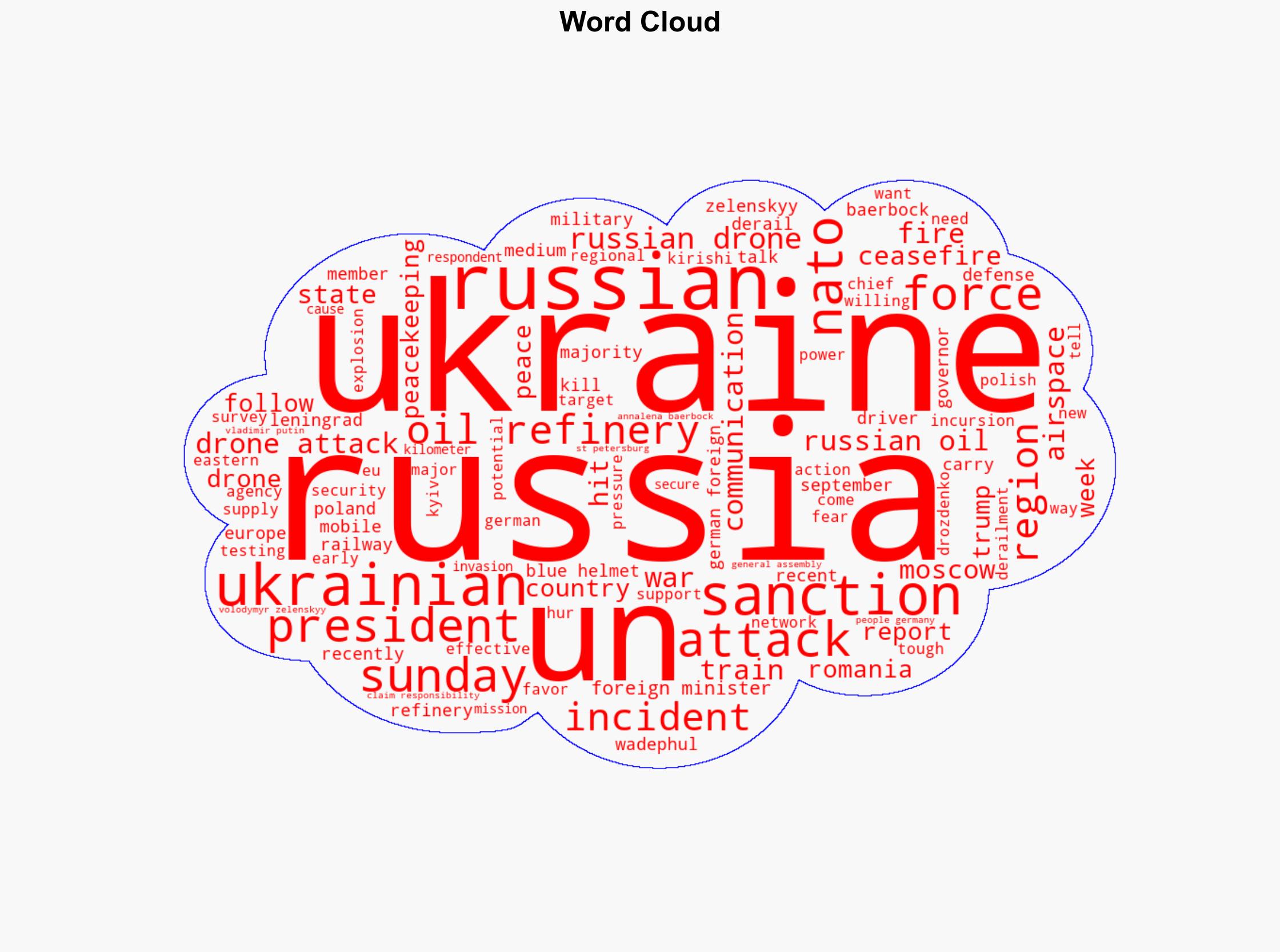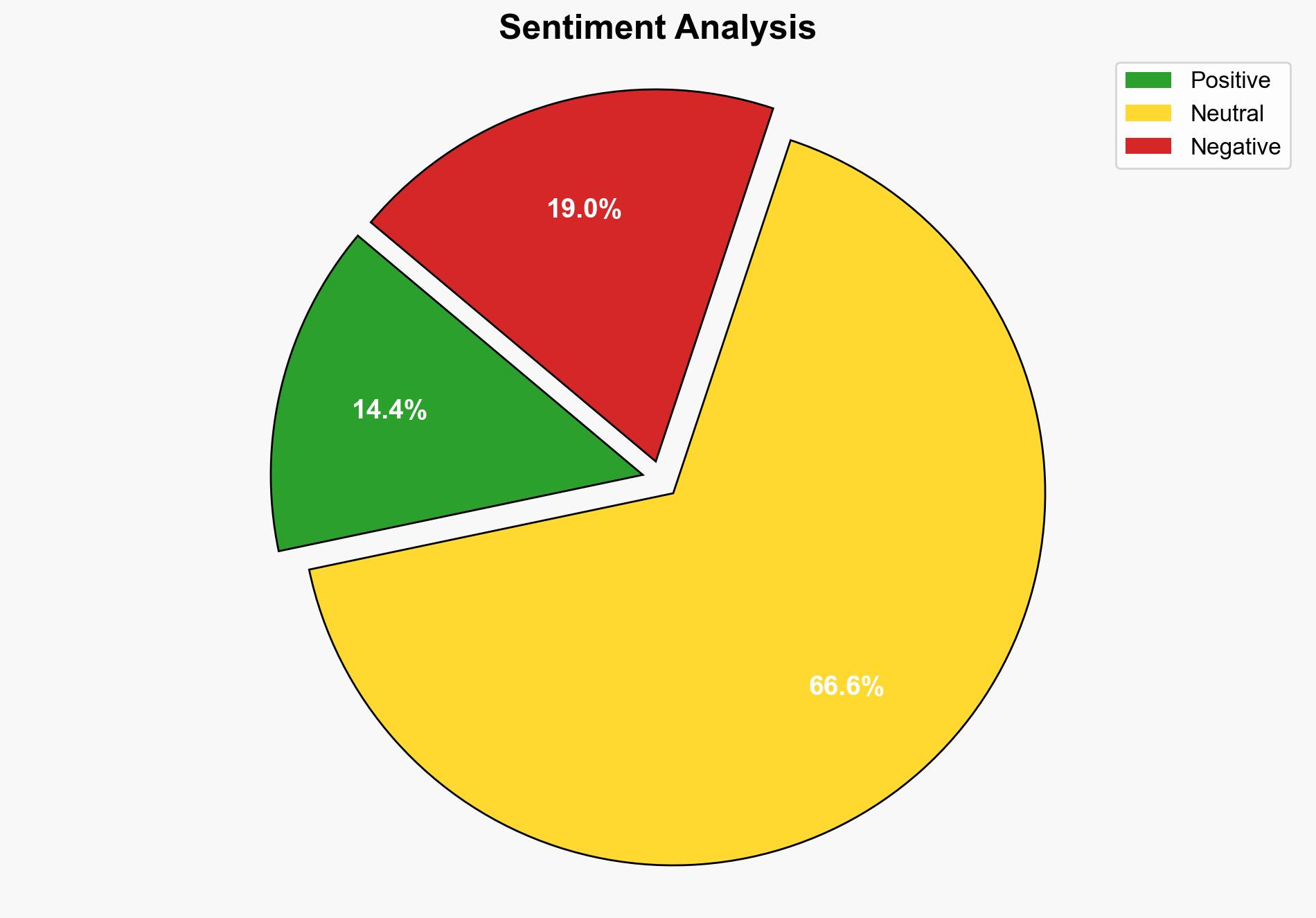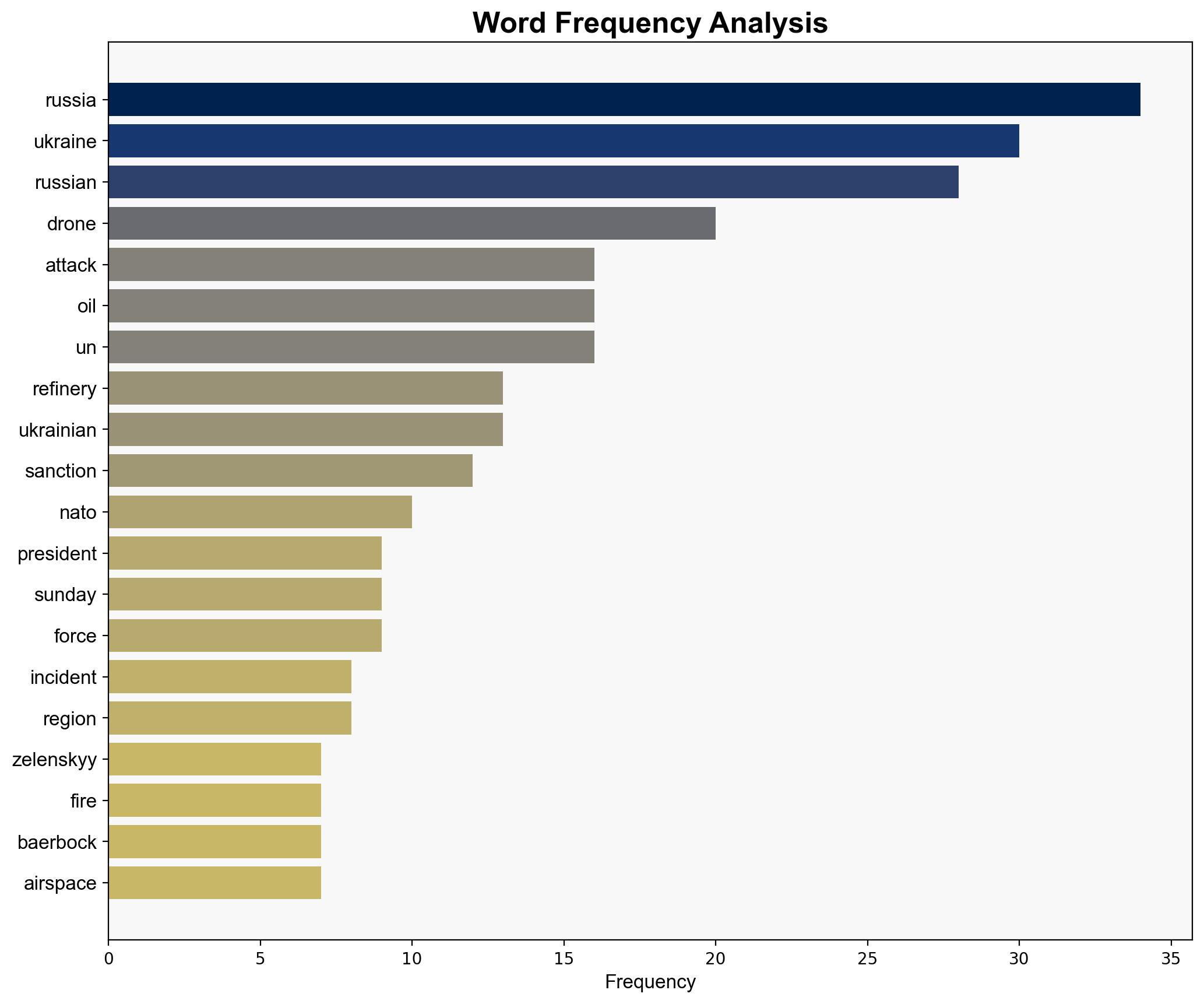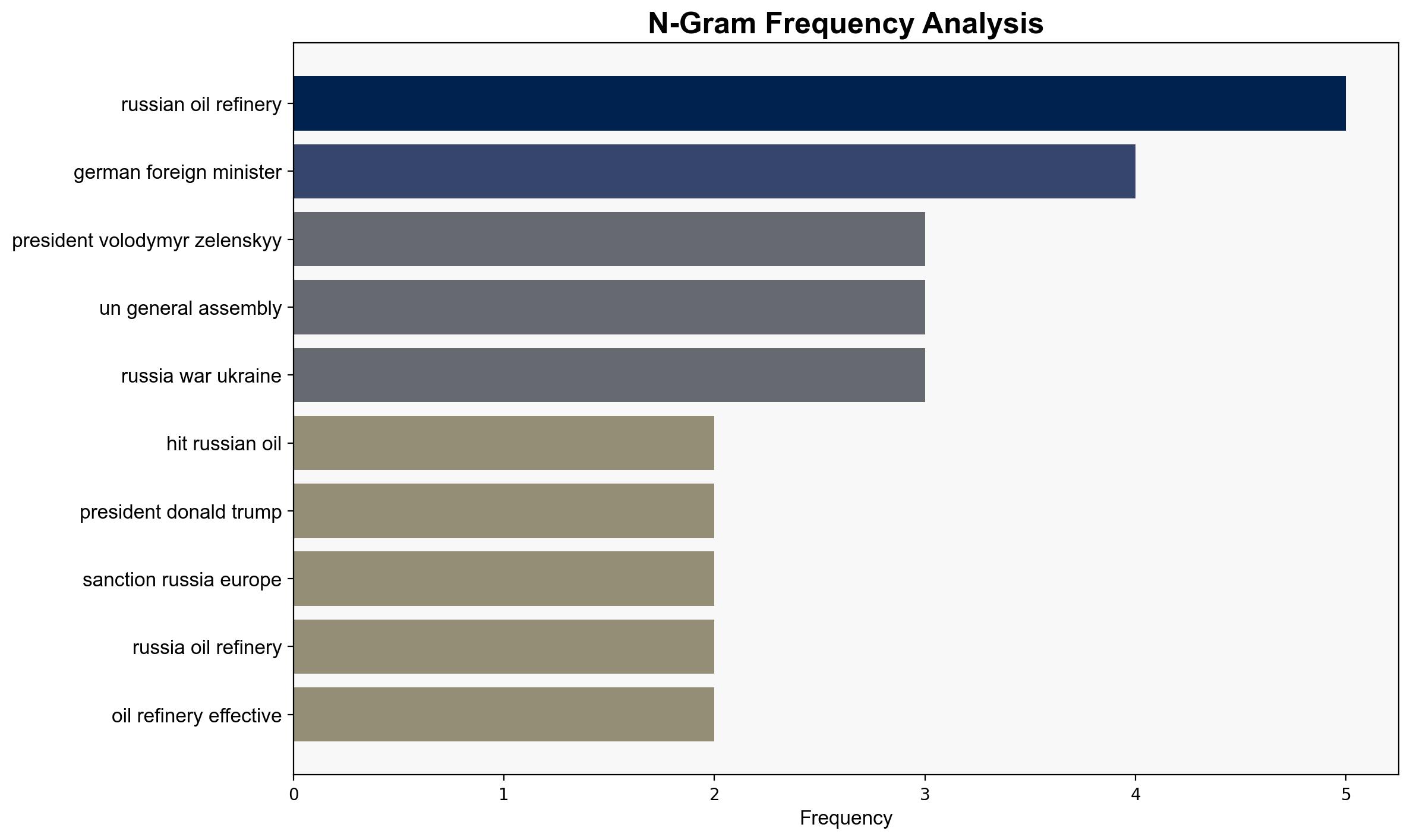Ukraine updates Could UN peacekeepers safeguard ceasefire – DW (English)
Published on: 2025-09-14
Intelligence Report: Ukraine updates Could UN peacekeepers safeguard ceasefire – DW (English)
1. BLUF (Bottom Line Up Front)
The most supported hypothesis suggests that increased sanctions and military pressure on Russia, coupled with potential UN peacekeeping involvement, could lead to a temporary stabilization in the conflict. Confidence level: Moderate. Recommended action: Strengthen diplomatic efforts to secure international support for sanctions and explore the feasibility of deploying UN peacekeepers.
2. Competing Hypotheses
1. **Hypothesis A**: Increased sanctions and military pressure will compel Russia to negotiate a ceasefire, potentially facilitated by UN peacekeepers.
– **Supporting Evidence**: Statements from European leaders and Donald Trump advocating for tougher sanctions; Ukrainian success in targeting Russian infrastructure.
– **SAT Used**: Analysis of Competing Hypotheses (ACH 2.0) indicates this hypothesis is more supported due to the alignment of international pressure and recent Ukrainian military successes.
2. **Hypothesis B**: Russia will escalate its military actions in response to increased sanctions and NATO’s defensive posturing, leading to further destabilization.
– **Supporting Evidence**: Recent Russian airspace violations and aggressive rhetoric; historical patterns of Russian responses to external pressures.
– **SAT Used**: Bayesian Scenario Modeling suggests this hypothesis is plausible but less supported due to the current lack of significant Russian military escalation beyond airspace violations.
3. Key Assumptions and Red Flags
– **Assumptions**: Sanctions will significantly impact Russia’s decision-making; UN peacekeepers can be effectively deployed and accepted by all parties.
– **Red Flags**: Potential underestimation of Russia’s capacity to adapt to sanctions; lack of clarity on the UN’s ability to mobilize peacekeepers quickly.
– **Blind Spots**: Limited insight into Russia’s internal political dynamics and potential covert strategies.
4. Implications and Strategic Risks
– **Economic**: Prolonged sanctions could strain global energy markets, impacting European economies.
– **Geopolitical**: Escalation risks involving NATO members, especially with recent airspace violations.
– **Psychological**: Increased fear and uncertainty in Europe regarding potential Russian aggression.
– **Cyber**: Potential for increased cyberattacks as a retaliatory measure by Russia.
5. Recommendations and Outlook
- Enhance diplomatic efforts to unify international support for sanctions and explore UN peacekeeping options.
- Prepare for potential Russian escalation by strengthening NATO’s eastern defenses.
- Monitor Russian domestic responses to sanctions for signs of internal dissent or policy shifts.
- Scenario Projections:
- **Best Case**: Successful ceasefire facilitated by UN peacekeepers, leading to negotiations.
- **Worst Case**: Russian escalation leads to broader conflict involving NATO.
- **Most Likely**: Continued stalemate with periodic escalations and international diplomatic efforts.
6. Key Individuals and Entities
– Volodymyr Zelenskyy
– Donald Trump
– Annalena Baerbock
– Johann Wadephul
– Vladimir Putin
7. Thematic Tags
national security threats, cybersecurity, counter-terrorism, regional focus





